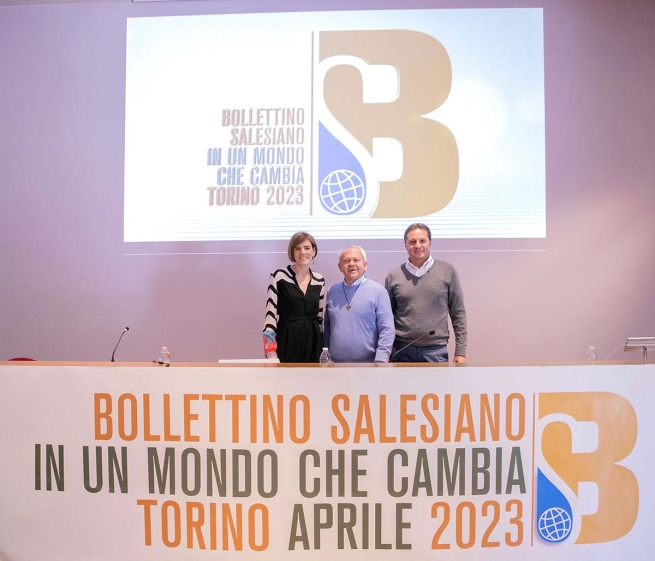Fr Makula posed some thought-provoking questions to the three speakers to enliven the debate. A number of themes emerged: the changes that digital has triggered in readers, publishers and their financial policies, and how to respond to these challenges.
Flavia Trupia said that we can define this era as they write in history books, 'Before social' and 'After social', we are in the transition between an old and habitual way of living, to a completely new way of living where we still have to figure out how to behave.
Our way of communicating has absolutely changed since the advent of digital, people prefer quick communication and maybe even full visual messages without using many words. Today, the people are little lazy in the deepening of their communicative analysis, which is why it is necessary to change communication to adapt to the common interests of our readers. This implies, that if we want to get a message across, we have to get to know our followers, we have to devise a new method that will be effective for them. An example was taken from the greatest communicator in the Catholic world, Pope Francis, who sends real, concrete and interesting messages to his followers through the use of body language: he likes to give a hug, shake hands, and the way he makes use of his space is very relevant.
After having asked why publishing books remains an essential decision even though statistics say that, in Italy but also in other countries, there are fewer and fewer readers today, it was said that there is still a strong interest in reading paper books rather than digital. It is true that the e-book has also taken off in recent years, but it still remains among the least favourite options for taking information.
Some interventions made by two participants in the meeting were also helpful to reflect on other aspects of BS, e.g. how news should be sifted, or how it should be written in order to generate more interest. Rightly so, the communication experts gave a clear answer, suggesting that news should be selected according to the target readership and consequently published either in print or digital form, depending on the age of the readers.
Another delegate pointed out to the entire audience how complex it can be to publish the most relevant news when the state to which one belongs does not allow it to be published due to a major political crisis. This gives people no way of understanding and knowing what situation those people are going through. At that point, Luca Priuli, gave a very good answer: ‘since we are a global reality, it would be fruitful if at the moment we know we cannot make a news or a make a situation known, we can share that information with our colleagues operating in other lands, only in this way can we show our work and the situation that some populations are forced to live in'.
They were interesting debates that truly opened the eyes of the participants in order to help them take the right path to carry out the mission of the Salesian Bulletin today.
https://www.infoans.org/en/component/k2/item/17833-italy-the-salesian-bulletin-in-a-changing-world-roundtable#sigProId1ef44debce



